|
Books Should Be Free Loyal Books Free Public Domain Audiobooks & eBook Downloads |
|
|
Books Should Be Free Loyal Books Free Public Domain Audiobooks & eBook Downloads |
|
Fiction |
|---|
|
Book type:
Sort by:
View by:
|
By: Ford Madox Ford (1873-1939) | |
|---|---|
 The Good Soldier
The Good Soldier
The Good Soldier (1915) "... is set just before World War I and chronicles the tragedies of the lives of two seemingly perfect couples. The novel is told using a series of flashbacks in non-chronological order, a literary technique pioneered by Ford. It also makes use of the device of the unreliable narrator, as the main character gradually reveals a version of events that is quite different from what the introduction leads you to believe. The novel was loosely based on two incidents of adultery and on Ford's messy personal life.”Music in sections 1-5 "Minuet in G flat major and Valse Bluette" by Beethoven | |
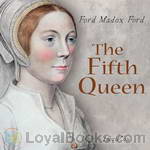 The Fifth Queen
The Fifth Queen
The Fifth Queen trilogy is a series of connected historical novels by English novelist Ford Madox Ford. It consists of three novels, The Fifth Queen; And How She Came to Court (1906), Privy Seal (1907) and The Fifth Queen Crowned (1908), which present a highly fictionalized account of Katharine Howard's marriage to King Henry VIII. | |
 Romance
Romance
| |
 Privy Seal His Last Venture
Privy Seal His Last Venture
| |
By: Alfred Elwes (1819-1888) | |
|---|---|
 The Adventures of a Dog, and a Good Dog Too
The Adventures of a Dog, and a Good Dog Too
This fictional work is written in 1st person by the dog himself. It's a cute story of the adventures in the life of a noble dog who is appropriately named, Job. The canine society in which he lives is an interesting parallel to human society. | |
 The Adventures of a Bear And a Great Bear too
The Adventures of a Bear And a Great Bear too
| |
By: Payne Erskine | |
|---|---|
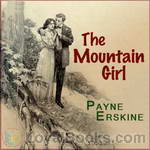 The Mountain Girl
The Mountain Girl
A delightful love-story, genuinely American in feeling and treatment. The story is stirring, the heroine is ideal. | |
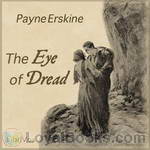 The Eye of Dread
The Eye of Dread
The Civil War is upon the United States, and the town of Leauvite has sent away its young men, among them Peter Junior and Richard Kildene. When they leave, Betty Ballard is but a child, but by the time the war has ended, she has become something else entirely. Wounded, Peter Junior finds his time at Betty's father's studio, learning to become an artist, until one day he proposes to her after deciding to go to France. Of course, she agrees to wait for him. Meanwhile, Richard, who has decided to work on the railways, expects that when he gets back, that Betty will be waiting for him. With these complications, problems begin to arise... | |
By: George Alfred Henty (1832-1902) | |
|---|---|
 By Pike and Dyke
By Pike and Dyke
It is the 1570's, and the people of the Netherlands live in terror under the cruel dominion of Spain. Though many long to be free of Spanish tyranny, efforts at rebellion are failing, and allies are nowhere to be found. Edward “Ned” Martin, son of an English captain and a Dutch lady, is thrust into the conflict when he resolves to help his mother’s people and avenge his murdered relatives. Entering the service of the revolutionary leader William the Silent, Prince of Orange, Ned is called upon to carry out dangerous secret missions deep within occupied territory... | |
By: George Moore | |
|---|---|
 Esther Waters
Esther Waters
“She stood on the platform watching the receding train. A few bushes hid the curve of the line; the white vapour rose above them, evaporating in the pale evening. A moment more and the last carriage would pass out of sight. The white gates swung forward slowly and closed over the line”. Thus opens the novel about Esther Waters, young, pious woman from a poor working class family who, while working as a kitchen maid, is seduced by another employee, becomes pregnant, is deserted by her lover, and against all odds decides to raise her child as a single mother... | |
By: Talbot Mundy (1879 -1940) | |
|---|---|
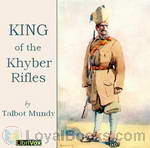 King of the Khyber Rifles
King of the Khyber Rifles
Athelstan King is a British Secret Agent stationed in India at the beginning of WWI. He is attached to the Khyber Rifles regiment as a cover, but his real job is to prevent a holy war. "To stop a holy war single-handed would be rather like stopping the wind--possibly easy enough, if one knew the way." King is ordered to work with a mysterious and powerful Eastern woman, Yasmini. Can King afford to trust her? Can he afford not to? (Introduction by Brett W. Downey) | |
 Caves of Terror
Caves of Terror
| |
 The Winds of the World
The Winds of the World
| |
 Rung Ho!
Rung Ho!
| |
 The Lion of Petra
The Lion of Petra
| |
By: Walter Pater (1839-1896) | |
|---|---|
 Marius the Epicurean
Marius the Epicurean
Marius the Epicurean is a philosophical novel written by Walter Pater, published in 1885. In it Pater displays, with fullness and elaboration, his ideal of the aesthetic life, his cult of beauty as opposed to bare asceticism, and his theory of the stimulating effect of the pursuit of beauty as an ideal of its own. The principles of what would be known as the Aesthetic movement were partly traceable to this book; and its impact was particularly felt on one of the movement’s leading proponents, Oscar Wilde, a former student of Pater at Oxford. | |
 Appreciations, with an Essay on Style
Appreciations, with an Essay on Style
Appreciations, with an Essay on Style, is a collection of Walter Pater's previously-published essays on literature. The collection was well received by public and critic since its first edition, in 1889. The volume includes an appraisal of the poems of Dante Gabriel Rossetti, first printed in 1883, a few months after Rossetti's death; an essay on Thomas Browne, whose Baroque style Pater admired; and a discussion of Measure for Measure, one of Pater's most often reprinted pieces. The second edition, published in 1890, had a few modifications, and is the basis for all other editions of the book. | |
 Gaston de Latour; an unfinished romance
Gaston de Latour; an unfinished romance
| |
By: James Driscoll | |
|---|---|
 The Brighton Boys in the Radio Service
The Brighton Boys in the Radio Service
The Brighton Boys in the Radio Service is a boys adventure story set in WWI – Three College Chums join the military and face the perils of spies, submarines and enemy soldiers in the trenches of embattled Europe. An engaging story set in a period where good guys wore white hats, bad guys wore black hats and every chapter ends with a cliffhanger so you have to come back for more! | |
By: Edward Phillips Oppenheim (1866-1946) | |
|---|---|
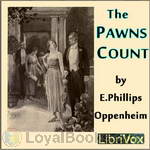 The Pawns Count
The Pawns Count
"I am for England and England only," John Lutchester, the Englishman, asserted."I am for Japan and Japan only," Nikasti, the Jap, insisted."I am for Germany first and America afterwards," Oscar Fischer, the German-American pronounced."I am for America first, America only, America always," Pamela Van Tale, the American girl, declared.They were all right except the German-American.It is during World War I. A chemist, Sandy Graham, has discovered a new powerful explosive, but he let's it slip in a London restaurant that he has made the discovery... | |
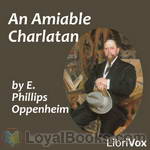 An Amiable Charlatan
An Amiable Charlatan
An Englishman is enjoying his dinner at Stephano's, at which he is a regular diner. A man enters quickly, sits at his table, starts eating his food, and hands him a packet underneath the table! So begins Paul Walmsley's acquaintance - and adventures - with American adventurer Joseph H. Parker and his lovely daughter, Eve. (Intro by TriciaG)Note that there is an alternate reading of section 8. Both are excellent renditions, so enjoy either or both of them. | |
 A Millionaire of Yesterday
A Millionaire of Yesterday
| |
 Havoc
Havoc
Havoc occurs when European countries are discussing covert alliances. The story revolves around the creation of a secret alliance between Germany, Russia, and Austria. The English hope to split Russia away by holding the Czar to his previous public commitments, but they need proof of what was done to create the pressure. All the pressures that lead to WWI are there, but the intrigues and secret treaties create an interesting background to the twists and turns of the plot. | |
 Anna the Adventuress
Anna the Adventuress
| |
 The Yellow Crayon
The Yellow Crayon
| |
 Jacob's Ladder
Jacob's Ladder
| |
 Peter Ruff and the Double Four
Peter Ruff and the Double Four
| |
 The Illustrious Prince
The Illustrious Prince
| |
 Vanished Messenger
Vanished Messenger
A conference of European nations is being held in the Hague. England has not been invited to attend. Some think war is about to break out. Mr. John P. Dunster, an American, is traveling to the Hague with an important document that may prevent the outbreak of war when he mysteriously disappears after a train wreck in England. Richard Hamel is asked by the British government to attempt to solve the mystery of Dunster’s disappearance and prevent the outbreak of war in Europe. | |
 Kingdom of the Blind
Kingdom of the Blind
| |
 Mr. Grex of Monte Carlo
Mr. Grex of Monte Carlo
| |
 Jeanne of the Marshes
Jeanne of the Marshes
| |
 The Malefactor
The Malefactor
| |
 A Prince of Sinners
A Prince of Sinners
| |
 The Double Four
The Double Four
| |
 The Great Prince Shan
The Great Prince Shan
| |
By: Émile Gaboriau (1832-1873) | |
|---|---|
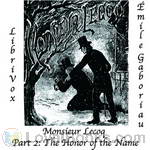 Monsieur Lecoq Part 2: The Honor of the Name
Monsieur Lecoq Part 2: The Honor of the Name
Monsieur Lecoq is a captivating mystery, historical and love story: Around 11 o'clock, on the evening of Shrove Sunday 18.., close to the old Barrière d'Italie, frightful cries, coming from Mother Chupin's drinking-shop, are heard by a party of detectives led by Inspector Gévrol. The squad runs up to it. A triple murder has just been committed. The murderer is caught on the premises. Despite Gévrol's opinion that four scoundrels encountered each other in this vile den, that they began to quarrel, that one of them had a revolver and killed the others, Lecoq, a young police agent, suspects a great mystery... | |
By: Emile Gaboriau (1832-1873) | |
|---|---|
 Other People's Money
Other People's Money
| |
 The Mystery of Orcival
The Mystery of Orcival
| |
 Baron Trigault's Vengeance
Baron Trigault's Vengeance
| |
 Caught in the Net
Caught in the Net
| |
 The Count's Millions
The Count's Millions
| |
 Within an Inch of His Life
Within an Inch of His Life
| |
By: Horatio Alger, Jr. (1832-1899) | |
|---|---|
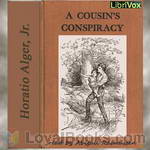 A Cousin's Conspiracy
A Cousin's Conspiracy
Ernest Ray is a young boy who sets out to reclaim the inheritance that was unjustly with held from his father and given to a cousin. (Introduction by Abigail Rasmussen) | |
By: Horatio Alger, Jr. (1832-1899) | |
|---|---|
 Timothy Crump's Ward
Timothy Crump's Ward
A poor family is surprised with an infant on their doorstep on New Year’s Eve with a note and monetary support requesting them to raise the child. Eight years later, the child is stolen and the family is put into more trouble trying to find her. This is a story of how love and good morals are reward with a fairy tale “happily ever after” ending. | |
By: David Lindsay (1876-1945) | |
|---|---|
 A Voyage to Arcturus
A Voyage to Arcturus
A Voyage to Arcturus is a novel by Scottish writer David Lindsay, first published in 1920. It combines fantasy, philosophy, and science fiction in an exploration of the nature of good and evil and their relationship with existence. It has been described by critic and philosopher Colin Wilson as the "greatest novel of the twentieth century" and was a central influence on C. S. Lewis's Space Trilogy. | |
By: Mary Webb (1881-1927) | |
|---|---|
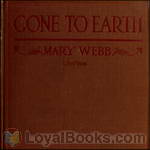 Gone To Earth
Gone To Earth
“Gone to Earth” is the cry of fox hunters as the fox takes to its den and they lose the chase. Here, Mary Webb tells the story of Hazel Woodus whose understanding of her half tame fox cub contrasts with her misunderstanding of humanity. She is pursued by two very different men, a Gentleman Farmer and the local Minister. Mary Webb’s writing is sometimes compared to that of Thomas Hardy, her descriptions of nature are vivid and her view of love and life is touched with tragedy. She wrote this book in 1917 and it is set in the borderlands of rural Shropshire. | |
By: Théophile Gautier (1811-1872) | |
|---|---|
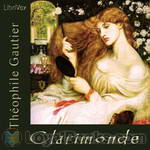 Clarimonde
Clarimonde
Original title “La Morte Amoreuse.” This is the story of a priest named Romauld, and his all-consuming love for the beautiful courtesan, Clarimonde. | |
 Captain Fracasse
Captain Fracasse
| |
 King Candaules
King Candaules
| |
By: Susan Warner (1819-1885) | |
|---|---|
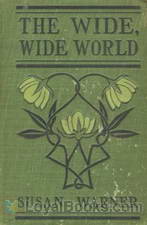 The Wide, Wide World
The Wide, Wide World
“How should a seven year old child react when forced to be separated from a mother who meant everything to her? How should she react when she learns that the aunt with whom she was sent to live doesn’t really care about her? Will she be able to make real friendships with people outside her family? Would she be able to take her belief in God as a comfort? If you want to find answers to all these questions, read the enjoyable novel “The Wide, Wide World”. There, you will see how the amazing Ellen Montgomery reacts to all those things, and many, many more”. | |